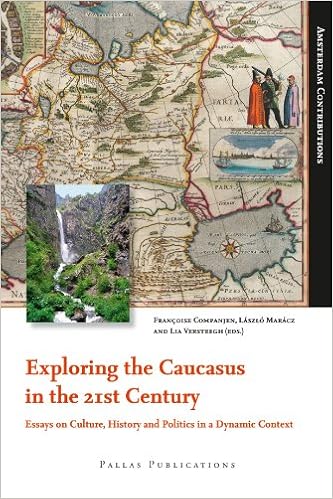
Exploring the Caucasus in the 21st Century is a unique contribution to the study of a complex region. Its authors bring together investigations of both the North and South Caucasus in an effort to explain discrete aspects of the history, linguistic complexity, current politics, and self-representations of the myriad peoples who live between Russia and the Middle East. Here you can find new material on the role of Arabic in Daghestan, conflicts in Georgia over ethnic identification, and the fallout from the Russo-Georgian War over South Ossetia. There is something here for scholars of Caucasia as well as interested general readers. This is a good place to start. Situated between Russia, Turkey, and Iran and comprising part of the Russian Federation along with Georgia, Armenia, and Azerbaijan, the Caucasus region is best known for ethnic and religious divides that have resulted in bloody conflicts for centuries, most recently between various minorities and the post-Soviet independent states. This extensive volume reveals the rich and multifaceted nature of the Caucasus and includes a study of the region’s transition to independence; an exploration of the area’s religions; and a discussion of the role of art in war-torn communities. It is necessary reading for anyone with an interest in one of the world’s most complex regions.
About the Author
Françoise Companjen is a senior lecturer at the Vrije Universiteit Amsterdam and manager of Caucasus Interconnect. László Marácz is a lecturer in Eastern European studies at the University of Amsterdam. Lia Versteegh is a lecturer in European law at the University of Amsterdam.
No comments:
Post a Comment